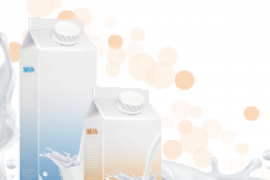By Emily McCluhan
Women deal with contraception, childbirth, hormonal changes and aging. Our health is incredibly dynamic throughout our life span, especially when it comes to our reproductive health and what’s normal “down there.”
So, we turned to Amanda Van Elzen, BS, BSN, RN and nurse educator at Associated Physicians, and Dr. Theresa Piquette, MD, OB/GYN at Physicians for Women – Melius & Schurr, to find out what the most commonly-asked questions are from their patients about vaginal health.
Is vaginal discharge normal?
Piquette says vaginal discharge means your vagina is doing what it’s supposed to do, in most cases.
“In fact, it is usually a good sign of the hormonal fluctuations of your menstrual cycle. Vaginal discharge is a mix of mucus produced by the cervix, shedding of cells from the vaginal skin, the lubrication produced by the glands located just at the opening of the vagina and the good bacteria (called a microbiome) that help prevent infection.”
She explains that at the beginning of your menstrual cycle, estrogen dominates and makes a scant and sticky discharge. Around and after ovulation, when progesterone dominates, discharge becomes more prolific in a stretchy “egg white” texture. This discharge is crucial to facilitate sperm mobility and ability to fertilize an egg.
“Of course, if you have a concern about a change in your vaginal discharge, or [there is an] odor, irritation, pain or rash, schedule an appointment with your provider,” says Piquette.
What vaginal changes will I experience while I’m pregnant?
According to Van Elzen, common vaginal side effects during pregnancy are increased sensation, discharge and swelling, as well as the potential to develop vulvar varicose veins due to increased blood flow to the pelvic region during pregnancy.
“Another potential vaginal change during pregnancy is an increase in common infections such as yeast infections and bacterial vaginosis,” says Van Elzen. “These infections are common because of the increase in progesterone and estrogen, as well as the change in the good bacteria during pregnancy, which can usually be easily diagnosed by your doctor and easily treated.”
I know kegels help strengthen my pelvic floor, but why is it so important that my pelvic floor is strong?
“The pelvic floor is a super-powerful zone of the body that is crucial to daily functioning but often doesn’t get the credit it deserves,” says Piquette.
She explains that the pelvic floor is a group of muscles that supports the entire weight of the abdominal organs, not just the uterus and ovaries. When it works well, it allows you to control when you empty your bladder and bowels, and allows the passage of a baby with a vaginal birth.
But many things can affect its functioning, such as childbirth, chronic constipation, poor posture, and frequent straining or heavy lifting.
“This leads to troubles like leaking of urine when you laugh or sneeze, pain with intercourse or even chronic pelvic pain,” says Piquette. “Even though these things may be common among women, they do not have to be a normal part of everyday life and should be assessed by your provider.”
I hear that vaginal dryness is a common side effect of menopause. What are treatments to look for and to avoid?
“Vaginal dryness occurs typically because of a loss of estrogen in the vagina, which may cause the lining to become thin and dry. With this thinning [and dryness], you may be prone to pain during intercourse and infections,” says Van Elzen.
Vaginal estrogen in the form of a cream you can apply is the treatment of highest efficacy because it supplies the deficient hormone. (Van Elzen notes there are also pills and transdermal patches that can treat holistic menopause symptoms beyond vaginal dryness, such as hot flashes and night sweats.)
“When used as a vaginal cream, it is not absorbed into the body’s bloodstream, which makes it a safe treatment in most any patient, even many of those with contraindications to systemic or oral estrogen,” says Piquette.
She lists other treatments that can help with dryness of the vulva, which can also be an issue, including topical moisturizers that have vitamin E or hyaluronic acid. Her favorite over-the-counter remedy for vulvar moisturization is petroleum jelly, because it’s inert, it’s cheap and it provides an excellent moisture barrier.
Van Elzen warns against using homemade creams and lubricants in general.
“Never put anything in your vagina which was not previously discussed with your provider. I have heard of using coconut oil, aloe vera, essential oils — even olive oil. These common kitchen items can interfere with good vaginal bacteria, break down latex condoms and be more likely to expose you to sexually-transmitted infections, vaginal infections and even pregnancy,” she says.
What signs or symptoms will I experience if I have an STI?
“Sometimes, people can feel embarrassed by the possibility of an STI, but it is very pertinent to seek treatment to prevent long-term damage … to you or your partner,” says Van Elzen.
Some of the symptoms she says to look for include changes in vaginal discharge color and odor, visible changes to your labia or vagina, as well as pain with urination. Other symptoms may include unusual vaginal bleeding, warts or blisters, an itchy vagina or anus, a rash or pain during intercourse.
Since there is such a wide variety of changes that can occur with an STI, Van Elzen reiterates it is crucial to discuss these symptoms with your medical team for diagnosis and treatment.
Should I get the HPV vaccination, even if I am over 20?
That’s a resounding “yes” from Van Elzen.
“Research has shown that the HPV vaccination can be effective in preventing cancer-causing infections in thousands of people every year and can potentially be given as late as 45 years old, and as early as nine years old in females and males.”
She recommends talking with your doctor about the benefits of the vaccination.




